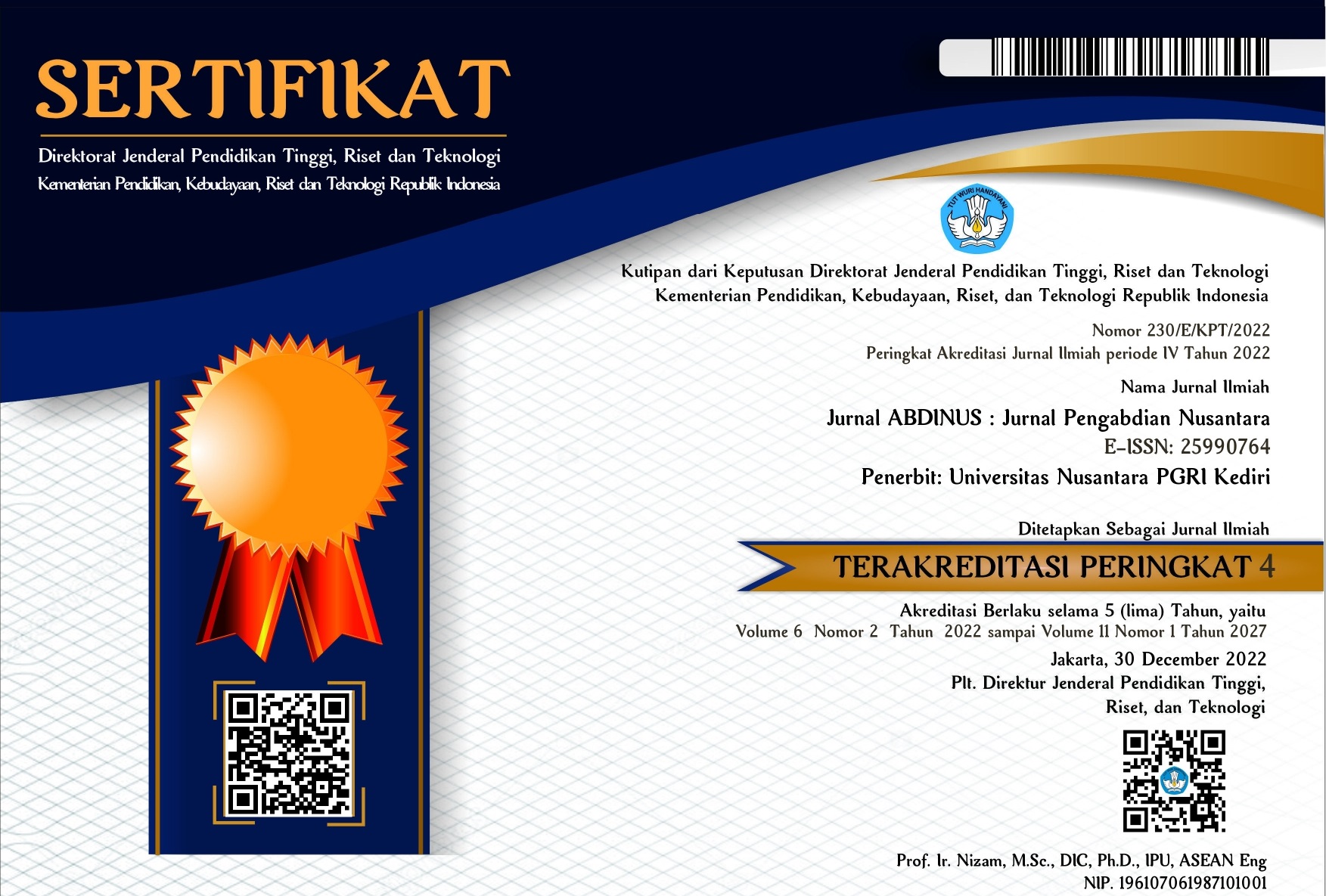Conscientization on Techniques of the Social Audit towards the Implementation of the Village Development Program
DOI:
https://doi.org/10.29407/ja.v6i1.16731Keywords:
Audit, Accountability, Village, Inclusion, DevelopmentAbstract
Through the social audit, villagers can control, supervise, and evaluate certain development programs or activities that have been implemented by the village government, because social audit can be positioned as a variant of public participation oriented towards the realization of democratic governance. This critical learning facilitation was held in the context of social awareness to expand the understanding of villagers about social audit techniques based on principles, benefits, and ideal stages while at the same time fostering the commitment of the village government to apply the principles of transparency and accountability in development management, including providing access to information disclosure related to the village planning and budgeting documents so that it can be known by the citizens as a whole. This community service activity involved dozens of residents and the village government officials as participants and was carried out during March 2018 in the Rabakodo Village, Woha District, Bima Regency, West Nusa Tenggara Province by applying special learning methods in the form of various lectures to convey the conceptual substance of social audit that must be understood by program participants, as well as practices to demonstrate the social audit work process that can be directly observed and practised by them. These facilitation activities produce outputs in the form of recommendations from residents to the village government so that (1) public participation in the planning-budgeting process, including the activities in the field of village development, community building, and community empowerment must be provided in large portions by the village government for the sake of democratic and inclusive management of the village development; (2) The village government must act transparently and responsively to the needs of the residents, and prioritize a persuasive approach when facing their demands; and (3) villagers must always actively participate in all stages of the village development management, especially in planning, budgeting, implementing, and monitoring phases.
Downloads
References
Berthin, G. (2011). A Practical Guide to Social Audit as a Participatory Tool to Strengthen Democratic Governance, Transparency, and Accountability. New York: UNDP Regional Center Panama.
Boyd, G. )1998). Social Auditing: A Method of Determining Impact. Retrieved from http://www.caledonia.org.uk/socialland/social.htm.
Daftar Hadir Musrenbangdus dan Musrenbangdes Tahun 2015.
Dokumen APBDesa Rabakodo Tahun 2016.
Dokumen Penduduk Desa Rabakodo Tahun 2017.
Dokumen RKPDesa Rabakodo Tahun 2017.
Haughton, G. (1988). Impact Analysis: The Social Audit Approach. Project Appraisal, 3(1): 21-25. doi:10.1080/026888867.1988.9726649
Hawtin, M. & Percy-Smith, J. (2007). Community Profiling: A Practical Guide. Second Edition. Berkshire: Open University Press.
Khan, M.A. & Stern, E. (2007). Auditing for Social Change in the Context of the Millennium Development Goals. In Division for Public Administration and Development Management. Auditing for Social Change: A Strategy for Citizen Engagement in Public Sector Accountability (pp. 3-18). New York: Department of Economic and Social Affairs (DESA), United Nations.
Kristiono D.S., R., et. al. (2012). Panduan Audit Sosial dan Advokasi Kebijakan Publik yang Berbasis Kerelawanan. Malang: Tifa Foundation & Malang Corruption Watch.
Puspitosari, H., et. al. (2011). Filosofi Pelayanan Publik. Malang: Setara Press dan Jaringan Nasional Masyarakat Peduli Pelayanan Publik.
Rahim, M. M. & Vicario, V. (2015). Social Audit: A Mess or Means in CSR Assessment? In Rahim, M. M. & Idowu, S. O (eds.) Social Audit Regulation: Development, Challenges and Opportunities (pp. 1-13). New York: Springer.
Shaikh, J. M. & Jakpar, S. (2007). Dispelling and Construction of Social Accounting in View of Social Audit. Information Systems Control Journal, 2: 1-6.
Srimarga, C. I., Fahazza, M., & Heriyanto, W. (2011). Manual Audit Sosial Multi Stakeholder: Membangun Suara Masyarakat Berbasis Bukti. Jakarta: USAID & Pattiro.
Thomas, K. (2005). Social Audit: A Tool for Performance Improvement and Outcome Measurement. Hyderabad: Center for Good Governance.
Undang-Undang Desa No. 6 Tahun 2014 tentang Desa.















